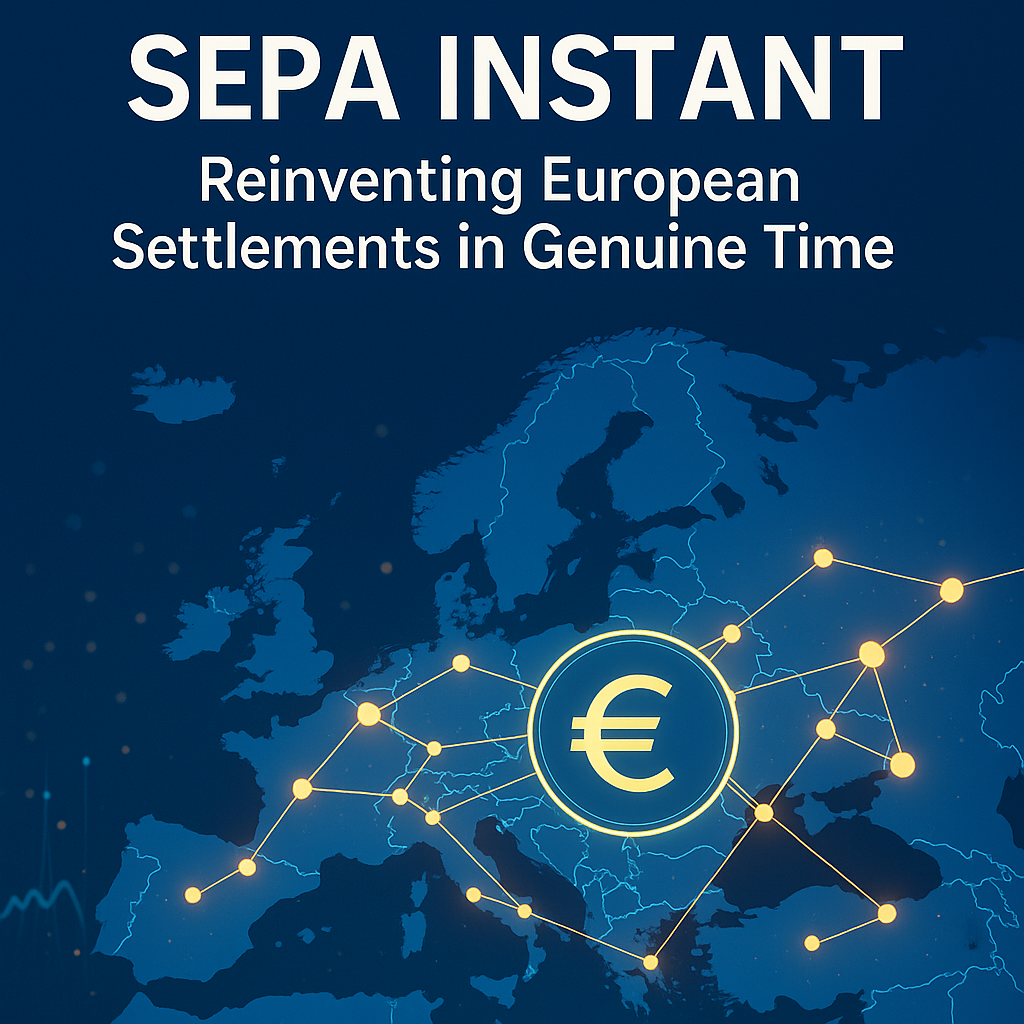Introduction to SEPA Instant
In the quickly developing landscape of finance, SEPA Immediate attracts attention as a groundbreaking development. SEPA Instant, brief for Single Euro Payments Area Instant Credit score Transfer, emerged in response to the growing demand for real-time repayments throughout Europe. This initiative aims to improve the efficiency and speed of euro purchases, enabling individuals and businesses to transfer money instantly, despite their area within the Eurozone.
Just How SEPA Instant Works
SEPA Instant operates an easy premise: enabling instant transfer of funds in between checking account in various European countries. Transactions can be conducted 24/ 7, guaranteeing that customers have accessibility to their money anytime they need it. The optimal transaction limit is currently set at EUR 100, 000, catering to both individual and business needs. The modern technology behind SEPA Instant is designed to improve the repayment procedure, reducing transaction times from days to plain secs.
Benefits of SEPA Instantaneous
Speed and Performance
Among the primary advantages of SEPA Immediate is the rate it introduces to the payment procedure. Traditional SEPA transfers can occupy to 24 hours or longer, yet SEPA Immediate deals are finished within seconds. This immediacy is crucial for companies that require fast payment verification for operational efficiency.
Increased Ease of access
SEPA Immediate increases availability for both consumers and organizations. With almost all significant banks in the Eurozone getting involved, individuals can easily participate in real-time payments. This democratization of economic services is leading the way for wider economic participation.
Improved Customer Experience
The immediacy of repayments considerably enhances consumer complete satisfaction. Customers take advantage of having the ability to spend for solutions immediately, while businesses see faster transactions, enhancing their capital and reducing wait times.
Difficulties and Considerations
While SEPA Immediate deals numerous advantages, there are challenges that still need to be addressed. Safety remains a main concern; as transactions happen in real-time, the risk of fraudulence is enhanced. Banks and financial institutions should purchase durable safety procedures to safeguard users. In addition, the application of SEPA Immediate across all financial systems is a recurring process, and some regions might lag in embracing these services.
Relevant Searches
- Just How does SEPA Immediate work?
- Advantages of SEPA Instant payments
- Obstacles in implementing SEPA Instantaneous
- Future of real-time repayments in Europe
- SEPA Instant vs standard SEPA transfers
Regularly Asked Questions
What is SEPA?
SEPA, or Solitary Euro Repayments Location, is an effort by the European Union to streamline bank transfers in euros throughout participant countries.
Just How is SEPA Instant different from standard SEPA?
SEPA Split second enables real-time purchases, while standard SEPA transfers can occupy to one company day to process.
Is there a cost for SEPA Immediate settlements?
Charges might differ depending on the bank or banks; some may provide SEPA Instantaneous transfers for free, while others might enforce costs.
Meeting with an Economist
To get further understandings right into the effect of SEPA Immediate, we spoke with Frederic Noel, a leading expert in European payment systems. He highlighted the transformational capacity of SEPA Immediate, mentioning, “” This technology is not almost purchase speed; it’s about improving how services and consumers communicate economically.””
Conclusion
SEPA Split second is definitely a game-changer for European settlements. By making it possible for real-time transactions, it comes up with a brand-new age of performance, access, and consumer contentment. As banks and banks continue to adapt to these changes, the future of European settlements looks promising.
Citations
- European Settlements Council. (n.d.). Overview of SEPA Immediate Credit Score Transfer.
- Payment Equipments Regulatory Authority. (2022 Real-Time Repayments: The Future of Finance.
- Frederic Yves Michel Noel. (2023 The Development of Payment Systems in Europe.

Comments are closed